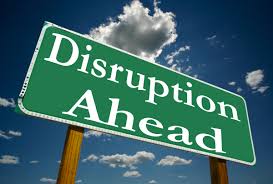
HRM talks to three experts about how their HR functions are navigating disruption.

Handling disruption is about keeping the company lean which enables it to be nimble and respond quickly, according to Samantha Pearce, director of administration, HR and accounting at ICD Property.
Pearce told HRM that ICD Property thrives on change, adaptation and always trying to create a win/win outcome.
“We put fun into everything we do and always ensure we have an exit plan - we see this as property development 101,” she said.
“Our HR team is building strong partnerships within the industry, which helps us to respond quickly to market changes.”
ICD Property also promotes company values to engage and reward behaviours in the areas of passion, innovation, collaboration and consideration.
“These behaviours encourage our young and dynamic team to upgrade their thinking, adopt new technology and a willingness to try new ideas.”
Meanwhile, Tony Lehner, director HR, at Unisys Asia Pacific, said their company has made a conscious effort to build a workforce that combines experience with innovative new thinking through their HR and recruitment strategies.
For instance, over the last eight years they’ve increased the proportion of employees aged 18 to 30 from under 2% to more than 26% of their Asia-Pacific workforce.
In the last six months, they have focused on employee development relevant to market requirements – now 72% of people have Individual Development Plans (up from 5%).
“Our people told us they wanted flexible work options but also wanted to collaborate and feel part of a community,” said Lehner.
“Consequently, we work in the office three days a week with the option to work remotely the other two, with flexible start times.”
Moreover, Jennifer White, HR director, Avnet, said disruption is part of their day job.
“Avnet has evolved many times over its long history to ensure they provide the most innovative solutions to partners and to best support the team,” said White.
“At a team level, we are focused on disrupting our own models to work smarter and achieve greater efficiency (eg through automation) to enable us to dedicate more quality time in the organisation – guiding, partnering and challenging older or less effective thinking patterns, processes and models.
“Our priority is balancing the short-term business deliverables with long-term culture development such that we elevate and amplify the positive experiences our people have through this time of transition and dynamism.”
Recent stories: